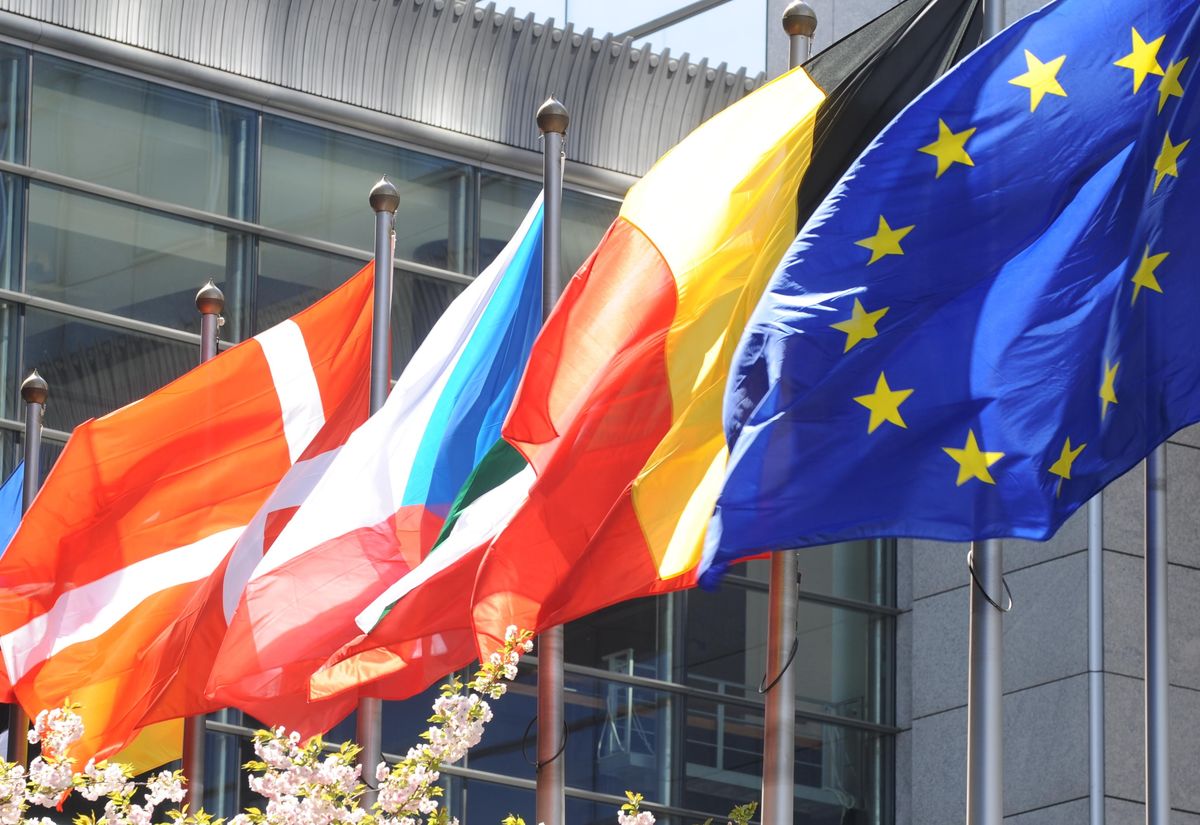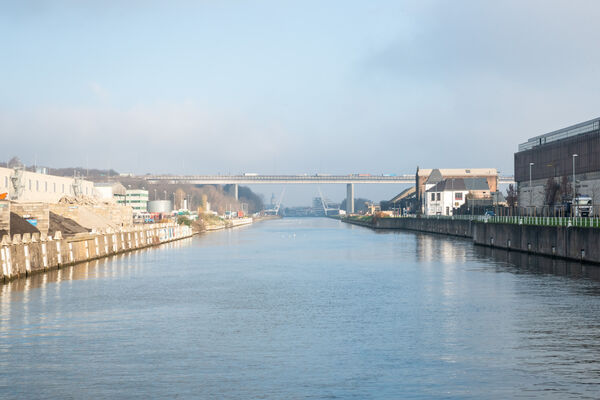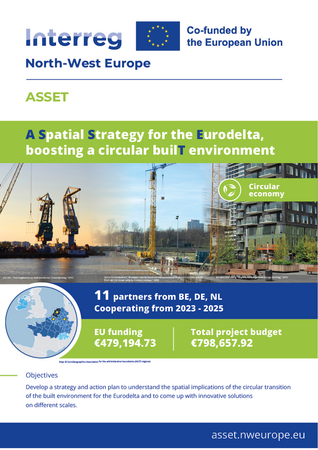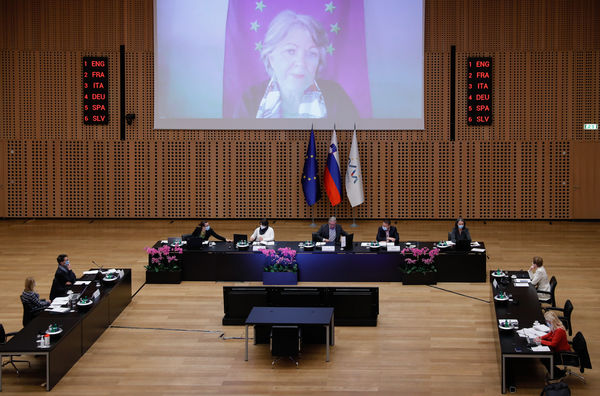- Home
- Urban projects
Urban projects
The territory of the Brussels-Capital Region is constantly developing. Learn more about our urban projects (French or Dutch)
- Urban issues
Urban issues
Housing, facilities, economy, land... perspective.brussels collects and analyses the data essential to the development strategy of the Region. Learn more about these urban issues (French or Dutch)
- Statistics and analyses
- Planning tools
- Who are we?
European action
The Brussels-Capital Region defends Brussels’ interests at the European institutions and participates in many discussions and projects, particularly within the framework of the European networks of cities. As the body responsible for initiating the territorial development strategy, perspective.brussels is one of the Brussels regional actors present on the European stage.
Actions of perspective.brussels
Actions of perspective.brussels
Official representation of the Brussels Region at the European institutions
At the European level, perspective.brussels represents the Brussels-Capital Region in three working groups: the Urban Development Group (UDG), the Network of Territorial Cohesion Contact Points (NTCCP) and the Expert Group on Territorial Cohesion and Urban Matters (EGTCUM).
It also represents the Region on the Monitoring Committee and General Assembly of the ESPON (European Spatial Planning Observation Network) programme which supports the development of territorial policies in the European Union by producing and distributing research on territorial development.
Participation in European projects
In addition to the Regional ERDF and ESF programmes, there are several European programmes that can be used to obtain financing.
| Programmes | Brussels contact points | European information |
|---|---|---|
| URBACT | Belgian contact point |
|
| EUROPEAN URBAN INITIATIVE | BRPS – Brussels International | Secretariat UIA |
| INTERREG North-West Europe | BRPS – Brussels International | Secretariat North-West INTERREG |
| INTERREG EUROPE | BRPS – Brussels international | Secretariat INTERREG |
| ESPON | Belgian contact point | GECT ESPON |
| HORIZON 2020 | Hub.brussels | European Commission |
| LIFE | Belgian Contact point | European Commission |
| ERASMUS+ | Wallonia-Brussels Federation Flanders |
ERASMUS+ |
perspective.brussels takes part in various European projects financed by these programmes:
Ongoing projects
ASSET: The 11 project partners of ASSET led by the city of Amsterdam are working on a spatial strategy for the Eurodelta to boost the circular transition of the built environment. Cities, regions, associations, and the academic field are aligning their research agendas to explore the added value of collaboration on the scale of the Eurodelta, to reach the goals of the EU Green Deal on circular economy in the building materials. This project is financed by the european programme Interreg North Wes Europe.
More info about the ASSET project
Past projects
Participation in the Cities4PEDs project funded by the JPI Urban Europe program. This collaborative project between Vienna, Stockholm and Brussels focuses on positive energy neighborhoods. The three partner cities are studying how cities can adapt their planning instruments to develop neighborhoods that produce more energy than they consume.
Three projects funded by the ESPON programme:
- STISE: study of sustainable transport infrastructures in the Eurodelta strategic urban region. The results of the STISE research should enable the Brussels Region to develop more sustainable mobility with the metropolises of North-Western Europe (Lille, Amsterdam, Rotterdam-The Hague, Cologne, the Rhur, etc.).
- METRO: study on the role and future prospects of cohesion policy in the strategic planning of metropolises and cities. This research should enable the Brussels Region to strengthen the links between its strategic and territorial planning policy and the European Union's cohesion policy.
- SPIMA: a project that studies the tools and approaches implemented by 10 European metropolitan areas (including the Brussels-Capital Region) to manage spatial development at metropolitan level.
Cities of making, a research project financed by the JPI Urban Europe and Horizon 2020 programmes, which explore the future of urban production in European cities; ;
Calico,an innovative Brussels intergenerational living project coordinated by Brussels Housing and the Community Land Trust Brussels (CLTB), and financed by the Innovative Urban Actions programme;
Watch our video on the Calico project
URBAN MAESTRO, a cooperation between UN-Habitat, the Bartlett School of Planning in London and perspective.brussels via the Bouwmeester master architect of the Brussels-Capital Region. It is funded by the Horizon 2020 programme and aims to improve urban quality through new, more flexible and creative planning methods;
Stop Drop-Out, a project bringing together partners from Belgium, France, Hungary and Aruba, financed by the Erasmus+ programme and which aims to discuss schemes to keep people attending school, targeting adults aged 30 to 34 years;
Monitoring European regulations and policies relating to spatial planning
Numerous European regulations and policies have a direct influence on urban planning and development. perspective.brussels actively monitors these initiatives and represents the interests of the Brussels-Capital Region in collaboration with Brussels International and the sectoral administrations. Among the texts and policies monitored are the SEA Directive (strategic environmental assessment), the Nature Restoration Law (restoration of ecosystems), the Soil Monitoring Law, the Cohesion Policy (reduction of regional disparities) and the Services Directive (liberalisation of the services market). In addition to these regulations, there is an Urban Agenda for the European Union, which constitutes the reference framework for guiding the action of European cities of the future and fully integrating urban issues into EU policies.
Partnership with the European Metropolis of Lille
The European Metropolis of Lille is an important partner for the Brussels Region.
perspective.brussels helped to draft the new cooperation agreement between the two metropolitan areas, signed on 2 May 2019. This agreement focuses on three topics of common interest: attractiveness, sustainable land development and the European Union and international areas.
perspective.brussels coordinates the implementation of the priority on sustainable land development in which other Brussels organisations such as urban.brussels, Brussels Environment and Brussels Mobility are also involved. It also contributes to the European Union and international areas priority coordinated by Brussels International/Delegation of the BCR to the EU.
Exchanges with other European cities and regions
perspective.brussels contributes to the exchanges with other European cities and regions through workshops or field visits, in Brussels or abroad such as Prague, Malmö, Lille, Lyon, Oslo, Amsterdam, etc.
It is also active in conferences such as the Cities Forum, the European Week of Regions and Cities, the ESPON seminars, the annual conferences of the French Network of Urban Planning Agencies (FNAU), etc.
European bodies and networks
perspective.brussels is active in various bodies and networks in Europe:
Eurostat : monitoring the works as part of the participation of the BISA (Brussels Institute for Statistics and Analysis) at the Interfederal Statistical Institute (IIS)-, International positioning working group);
European Urban Audit: which measures the perception of quality of life in 79 European cities: the BISA provides data..
EUROCITIES, a platform for discussion and representation of major European cities in terms of urban issues; perspective.brussels presides over its Metropolitan areas working group and takes part in the activities of other working groups (Cohesion policy, EU Urban Agenda, Sustainable Development Goals, etc.) along with conferences and training courses;
METREX, a network of experts in territorial planning in European regions and metropolitan areas;
European Metropolitan Authorities (EMA), a network promoting and recognising the role of metropolitan areas in Europe; perspective.brussels participates in the annual EMA forum.
Contact
Alfredo CorbalanExpert affaires européennes, internationales et interrégionalesExpert Europese, internationale en interregionale zaken
SandrineDe MeyerChargée de mission en affaires européennes et internationales Beleidsmedewerker Europese en internationale zaken
CécileHoupertChargée de mission en affaires européennes et internationalesBeleidsmedewerker Europese en internationale zaken





